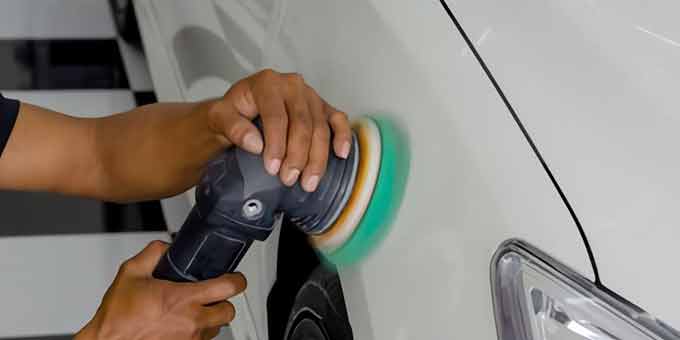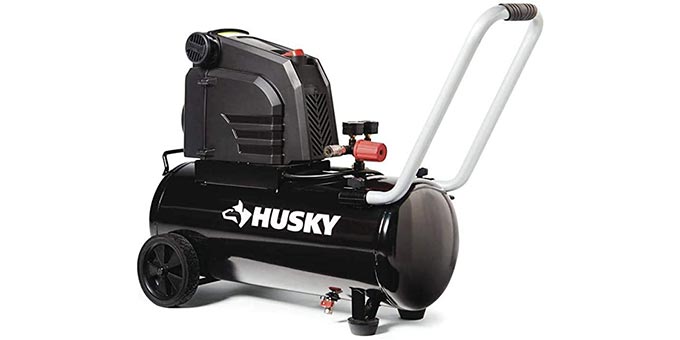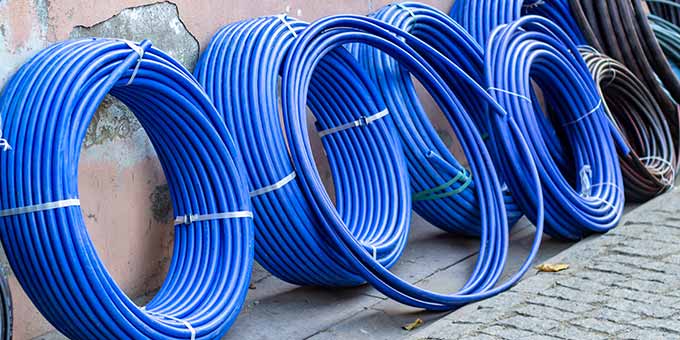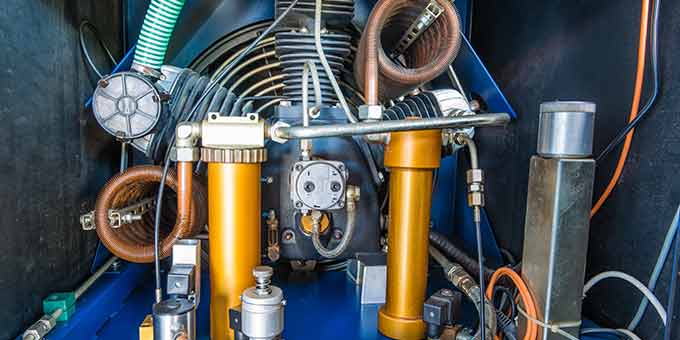If you are wondering: “Can an air compressor explode?” the short answer is yes, they can. Manufacturing defects or corrosion are generally responsible for these explosions.
However, explosions can be easily avoided. Here is everything you need to know to prevent your air compressor from exploding.
What Are Air Compressors and What Are They Used for?
An air compressor is an instrument that transforms power into potential energy in the form of pressurized or compressed air.
It increases the pressure of a storage tank by forcing more and more air into it and turns off when the pressure in the tank hits its upper threshold. The compressed or pressurized air is then stored in the air holding tank until it is needed.
Air compressors are used for a variety of applications, including providing high-pressure fresh air to supply gas cylinders or clean air for a diver. Compressed air is also used to drive certain HVAC valves in buildings, providing power to pneumatic tools such as jackhammers or for filling tires.
They also have many other applications in many different industries, making them vital, yet potentially dangerous equipment.
Why We Need Compressed Air
Compressed air, while not as common as other forms of energy, such as petroleum, electricity, or gas, plays an essential part in fueling our contemporary world. It is vital to the majority of current manufacturing processes as well as modern civilization.
Most of the items we use daily were manufactured with compressed air at some stage throughout the manufacturing process, even if we don’t recognize it.
In reality, compressed air accounts for nearly 10 percent of all energy consumed in manufacturing today.
The primary distinction between other energy sources and compressed air is that consumers may simply manufacture their own air using an air compressor and choose how they do so.
Therefore, air compressors can meet a wide range of requirements.
Numerous applications in various conditions require pneumatic air, and air compressors can be built with the appropriate attachments to compress air to a predetermined pressure, flow rate, and purity.
How Safe Is Compressed Air?
Compressed air is a pure, safe, easy, and economical source of energy. When compressed air is used as an energy source, it does not produce toxic gases or other damaging by-products. It is essentially a pollution-free, non-combustible resource.
When people overuse compressed air or when compressor air tanks are not serviced regularly and maintained well, the consequences can be deadly.
It is always advisable to follow the manufacturer’s instructions to maintain and service air compressors to prevent any explosions.
Furthermore, it’s important to note that canned air, the compressed air sold in compact cans for cleaning electronics and computers, is not the same as actual compressed air produced by compressing air with an air compressor. Canned air is an explosive chemical mix that has a greater risk of exploding.
What Causes Air Compressor Tank Explosions?
While air compressor explosions do indeed occur, they are extremely rare. If air compressors are maintained correctly and regularly serviced, the odds of having the compressed air explode are fairly low. However, manufacturing defects can also cause the air receiver tank to explode.
Manufacturing Defects
If air compressor tanks have not been manufactured correctly, there is nothing you can do to prevent them from exploding.
However, manufacturing defects are extremely rare because most manufacturers test air compressors before selling them, so if an air compressor explodes, it is likely because of corrosion.
Corrosion
Corrosion is the most common cause of air compressor tank explosions. Because water is a residue of compressed air, condensation can form quite quickly inside an air compressor tank. To avoid corrosion from occurring inside the compressor tank, you must remove any moisture that arises regularly.
After every use, most air compressor manufacturers recommend draining the tank through the drain valve. Many manufacturers also say that if you intend to keep your tank for a long time, you must close the drain valves after draining it. The odds of water corroding the air pressure tank are significantly reduced in this manner.
Most air tanks come with a user manual. If you want to prevent an explosion, it is essential that you familiarize yourself with this manual and follow the manufacturer’s instructions, even though it may seem like a lot of work.
Can Compressed Air Explosions Be Deadly?
The bad news is that if a compressor explodes, the results can indeed be deadly. This depends on how far away from the compressor a person is when the compressor explosion occurs and the size of the compressor.
Exposure to Compressed Air
If compressed air is blown directly onto the skin, it can cause obstruction to arteries. It may even result in an embolism while breathing in compressed air can cause your esophagus and lungs.
When blown onto the ears, compressed air can cause a rupturing of the eardrums and brain damage, so while using compressed air may be a safer form of energy, misusing it or mishandling it can have deadly consequences.
If breathed in or swallowed, canned air can also be fatal. The danger comes from the chemicals in the bottled air, not from the compressed air itself. Inhaling toxins is never a good idea. Both canned air and compressed air are deadly, but only if they’re used incorrectly.
Preventing Air Compressor Explosions: Testing Air Compressor Tanks
The only reliable way to check the compressor tank for corrosion is through hydraulic pressure testing. However, this procedure can cost as much as a completely new air tank. Another option is to use a rubber mallet to tap on an air compressor tank that is devoid of air.
Test to see if the tank readily generates an indentation by hammering it on the top, sides, ends, and bottom. If you find indentations, it may be an indication of a rusted spot that is weak.
Furthermore, if the water coming out of the drain valve is a rusty red color, this is another sign that corrosion has begun within the tank.
How to Maintain Your Air Compressor
Because replacing an air receiver tank is a costly alternative, it is always advisable to take care in maintaining it to prevent the trouble of having to replace it.
Draining a tank on a regular basis isn’t all there is to maintaining a compressor and preventing an air tank explosion. However, it is one of the most important things you can do to prevent corrosion from forming in the tank.
Always check to see that there is oil in the tank. A special oil that is often included with the tank can prevent rust from forming inside of it.
If your air compressor has no oil, rust can build up pretty quickly. Generally, this oil does not need to be replaced or added every day, but checking the oil levels regularly can make a world of difference.
The maintenance of a compressor is not as difficult as it may appear, and it is an essential step in extending the device’s lifespan.
This process must be done at least once every year or according to the manufacturer’s instructions to prevent an air compressor tank rupture. Below are the steps to take when servicing or maintaining a compressor.
1. Do An Oil Change
Check to see whether the oil in the air compressor needs to be changed. Replacing the oil in your air compressor may seem to be a complex chore, but it is pretty simple.
It is essential in order to keep the equipment running efficiently. Your instruction manual can tell you how to perform this task safely.
2. Replace the Air Filter
It is fairly straightforward to remove the air filter from an air compressor on your own. Follow the instructions laid out in the manufacturer’s manual for information on removing and replacing the air filter safely.
Typically, removing the filter involves simply pulling it out or unscrewing it and replacing it with a new one.
3. Check the Compressor’s Belt
It’s also crucial to change the compressor belt if it’s worn out. This process is often as simple as changing the air filter. Nowadays, air compressors feature a plastic cage around the device’s pulleys.
Older versions of the devices, on the other hand, included exposed pulleys, making changing the belt a simple task.
You may need to remove this plastic cage before changing the compressor belt on newer models, but be sure to check your user manual for instructions on how to do this.
Final Thoughts
The reality is that air compressors can explode, but these explosions are preventable in most cases. It is critical to follow the correct safety measures for tank maintenance as stipulated by the manufacturer in order to ensure that your air compressor remains in the best shape.
Alternatively, stick to the service schedule provided by your device’s manufacturer. You cannot expect the compressor to work correctly if you don’t maintain it on a regular basis.
Taking the time to undertake these simple activities doesn’t just lengthen the lifespan of your equipment, but it also ensures that it does not explode.








